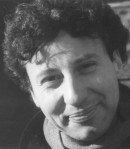

Plenary Lecture
Application of Descriptive Statistical and Time Series Analysis on Atmospheric Pollution

Assistant Professor Efthimios Zervas
Hellenic Open University
School of Science and Technology
Patra, Greece
E-mail: zervas@eap.gr
Abstract: In several scientific fields the results are obtained in the form of time series, i.e. the series of observations in constant, or not, time intervals. The analysis of time series data can be performed using several statistical methods. Two of these methods are presented here, and their advantages, disadvantages and limitations are compared and discussed. The first one uses four descriptive statistical measures: mean value, standard deviation, skewness and kurtosis of the data distribution. Those measures can be applied on different time frames, such as annual period, monthly, weekly, daily, etc. The second method uses the time series analysis. More specifically, the time series is represented by a dynamic model (model ARIMA, process Box&Jenkins), where each observation is considered as a function of the past values. The Box–Jenkins (ARIMA) method first analyses the time series in order to find its trend, its periodicity, its constant term and its noise. In a second part, the time series is transformed to stationary one (without trend and periodicity), by appropriate data transformation. The combination of the moving average of the stationary time series with autoregressive parameters yields to a comprehensive model linking each value with the previous ones. This model can be used not only to explain the underlying process generating the time series, but also as a basis for forecasting of future values.
The previous two methods, the descriptive statistical analysis and the time series analysis, are applied in the case of Athens atmospheric pollutants. Several pollutants measured in different stations and during several years are analyzed. The results, but also the limitations, of the two methods are compared and discussed.
Brief Biography of the Speaker: Efthimios Zervas has a degree of Chemical Engineering of National Technical University of Athens, Greece and a Ph.D. of Institut Français du Pétrole (IFP) and University of Haute Alsace - France. He worked for several years in Renault in the field of emission control and development of after-treatment devices. In 2006 he moved as Assistant Professor in the Department of Environmental Engineering of Democritus University of Thrace and in September 2009 he moved in Hellenic Open University. His scientific interests are in the fields of atmospheric pollution, control of pollutants emitted from combustion systems, development and use of alternative fuels, energy and environmental policy and economics. He is author of more than 50 publications in international scientific journals, has more than 70 presentations in conferences, is referee of more than 130 papers of international scientific journals and has more than 600 citations.